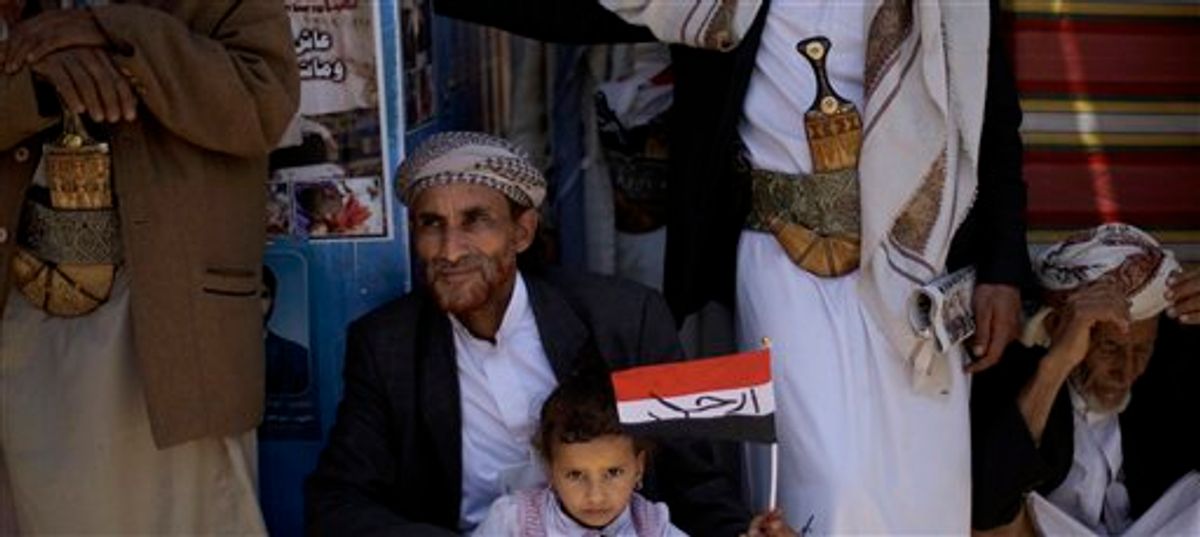The leader of Yemen's largest tribe sided Thursday with opponents of the embattled president, calling for Ali Abdullah Saleh to step down immediately and refrain from further violence against protesters.
The decision by the widely respected Sheik Sinan Abu Lohoum, 80, was announced in a statement issued from the United States, where he is receiving medical treatment. It was read to protesters gathered at a central Sanaa square that has become the epicenter of the protests.
Members of Abu Lohoum's immediate family confirmed the authenticity of the statement.
Abu Lohoum's Baqeel tribe is the larger of two that follow the Zaidi offshoot of Shiite Islam. The other -- Saleh's own Hashid tribe -- has already backed the opposition.
Several senior military commanders, lawmakers, Cabinet ministers, diplomats and provincial governors have also defected to the opposition over the last week.
Saleh has repeatedly sought to appease the protesters, to no avail.
Over the past month, he has offered not to run again when his current term ends in 2013, then offered this week to step down by the end of the year and open a dialogue with the leaders of the demonstrators.
At the same time, he has stepped up the use of violence. His security forces shot dead more than 40 demonstrators in Sanaa on Friday, but the bloodshed only escalated the defections and hardened the protesters' rejection of anything but his immediate departure.
Yemen's legislature granted Saleh's request for a 30-day state of emergency on Wednesday in a vote the opposition called illegal.
The state of emergency declaration appeared to signal that Saleh intends to dig in and try to crush his opponents. The decree allows media censorship, gives wide powers to censor mail, tap phone lines, search homes and arrest and detain suspects without judicial process.
Opposition parties allied with the youth groups in the protests said Saleh in part wanted the state of emergency as a legal cover for further crackdowns on the protests. Opposition and independent legislators stayed away from Wednesday's parliamentary session along with dozens of lawmakers from Saleh's own ruling party.



Shares